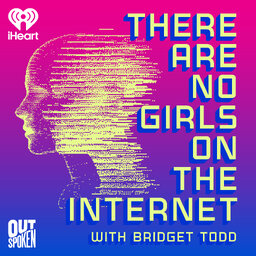Janet Jackson’s trauma led to the creation of YouTube. And it says a lot about the internet
WE’RE DOING A LIVE SHOW in NYC and VIRTUALLY on 5/28! Get tickets: Tangoti.com/live
You probably know about Janet Jackson’s infamous SuperBowl “wardrobe malfunction,” but did you know it inspired the creation of YouTube?
Kimberly Foster, founder of For Harriet discusses how sexism and racism is baked into tech and what it means.
Follow ForHarriet on Patreon: https://www.patreon.com/forharriet
[ In case you’re curious, Bridget’s favorite Janet Jackson song is “Together Again,” but her favorite Janet Jackson deep cut is “Again” ]
Join our newsletter: Tangoti.com/newsletter
Want to support the show? (thank you!)
Subscribe, tell a friend, leave a review, or buy some merch at There Are No Girls on the Internet’s store: TANGOTI.COM/STORE
Say hello at hello@tangoti.com
In 1 playlist(s)
There Are No Girls on the Internet
Marginalized voices have always been at the forefront of the internet, yet our stories often go over…Social links
Follow podcast
Recent clips

Amazon Ring Super Bowl Ad BACKFIRES; YouTubers Exploit Women's Arrest Videos; Salesforce CEO ICE "Joke" – NEWS ROUNDUP!
1:10:54

University of Oklahoma Trans Instructor's Attorney Still in the Fight After Appeal Denied
47:18

Should You Trust Andrew Huberman? What CBS's Epstein Disaster Reveals About Wellness Gurus
1:32:51
 There Are No Girls on the Internet
There Are No Girls on the Internet